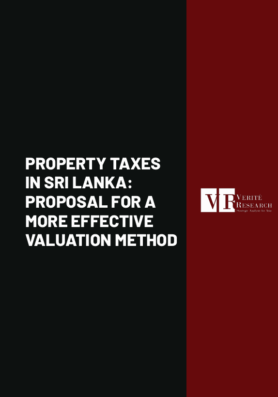This paper focuses on reforming Sri Lanka’s main property tax, commonly known as the rate assessment system, which currently generates only tiny amounts of revenue for local councils. Despite its potential to provide councils with independent financial resources, the system remains underutilized. The core issue lies in its antiquated method of property valuation manual site inspections that are costly, slow, and prone to corruption. The focus of reform is on adopting more effective digital methods that enable fair, consistent, and low-cost property valuations at scale.
Partner Publication
